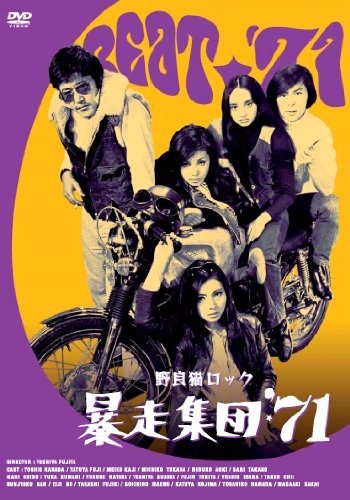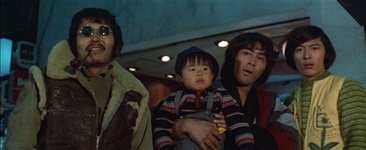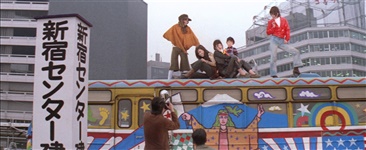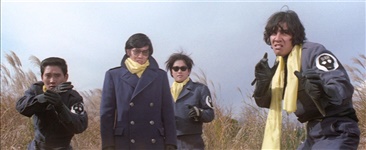Stray Cat Rock: Beat '71 (1971)

In the first ten minutes of the film Meiko Kaji manages to frame herself for murder, escape from prison and disappear to find the boyfriend who actually committed the crime. She discovers that he has returned to his home town, where his father is grooming him to take over his business so that he can pursue a career in politics. The father's thugs abduct her, and it's up to her Tokyo friends to rescue her.
Kaji's presence in the film is sporadic after the first ten minutes - she doesn't disappear completely but she's only glimpsed until the finale. Most of the film is spent with the small band of worn out hippies she belonged to and the hierarchy of corruption and small town conservatism that has taken her from them.
The group cling to their free-loving anti-authoritarian principles but it's clear that they are a dwindling anachronism, a smudge of colour that society seeks to exorcise in favour of a rigid, colourless structure of power and privilege. The hope and optimism that characterised the summer of love has almost vanished, replaced with a sense of resigned defeat.
Meiko Kaji's own story is minimal, she basically throws everything away for a hopeless love. Her friends don't really have any idea how to challenge entrenched power and violence with peace and love, and are ultimately left with nothing but stubborn defiance... oh, and a stash of dynamite.
Tatsuya Fuji brings some of the psychedelia and levity that he brought to the second film in the series, Stray Cat Rock: Wild Jumbo, but overall the mood is nihilistic. What hope of changing the world if you can't meaningfully challenge the authority of a handful of two-bit thugs in a provincial town?
Cast
Crew
| Director | |
|---|---|
| Production Company | |
| Writer |







